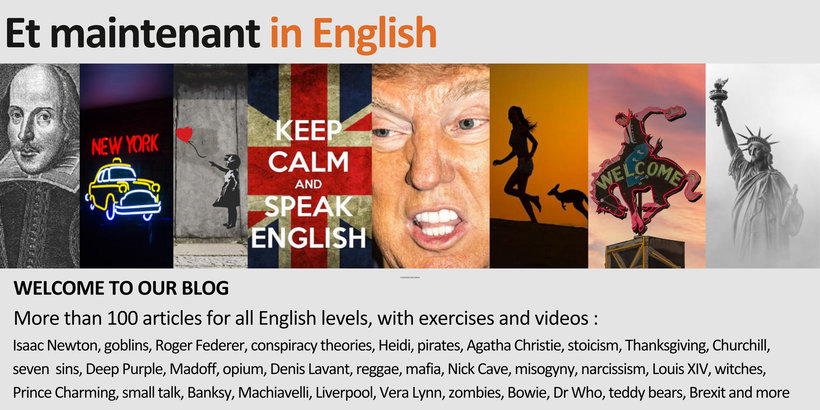(B2+ with vocabulary)
By GARRY LITTMAN, director and senior trainer at The Language House
The book, Robinson Crusoe, written by Daniel Defoe in 1719 is said to be the first English novel. The book’s success launched the Robinson genre – epic stories about the survival of the lost and the shipwrecked. One of my favourite TV series as a kid was Lost in Space which follows the Robinson family, yes that’s right, the Robinson family, battling aliens, the nasty Dr Smith and a robot whose would exclaim at the climax in every episode was: Danger! Danger! Danger! (A film was made in 1998 with William Hurt, Gary Oldman and, wait for it, Matt LeBlanc (Joey from Friends).
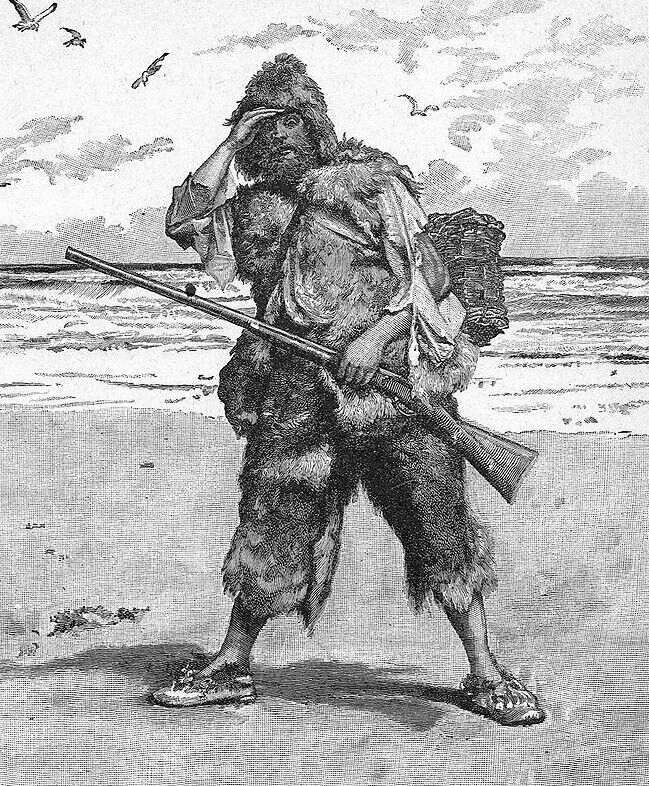
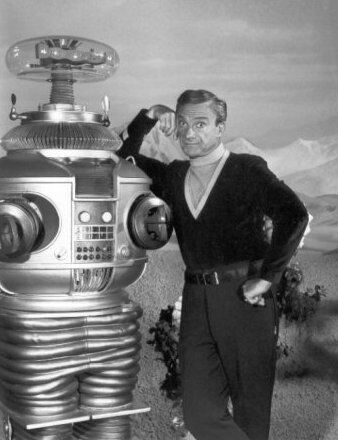
Above left: Robinson Crusoe and the doctor and robot from Lost in Space which also featured the Robinson family
Even the Swiss got in on the act. Swiss Family Robinson was the title of a novel written by a Swiss pastor, Johann David Wyss, first published in German in 1812. The Swiss Robinsons were shipwrecked on an island… mmm sounds familiar.
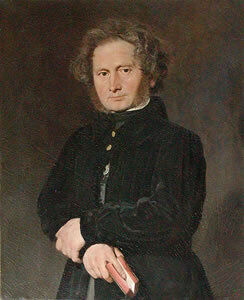
Above: Author and pastor, Johann David Wyss
Wyss wrote the book to teach his four sons about family values, survival, self-reliance, animal husbandry and nature. Wyss let his imagination fly. Their new island home which they called The New Switzerland is inhabited by a Darwin-defying array of plants and animals. There are platypuses, rhinos, zebras, walruses, moose, tigers, giraffes, penguins, brown bears, koalas, wolves, elephants, flamingos, ostriches and wombats to name a few – in fact almost every animal known to David Attenborough appears in the book.
These Robinsons are almost obnoxiously perfect; imbued with a puritan Christian morality. The father, William who is also the narrator is a walking-talking encyclopaedia. He knows everything, absolutely everything about animals, plants, trees; how to build, cook, grow, and make things. Mother cooks, and cleans, and provides to perfection. The four boys – Fritz, Earnest, Jack and Franz all adapt remarkably well. But they do like to kill everything in sight - as was done in that period. Bang! Bang! Animals are shot and killed in every chapter. If they aren’t killed, they are wondrously domesticated like Fang the pet jackal, an ostrich which become the island’s Uber, and Nip the monkey who is adopted and used to test for poisonous fruits.
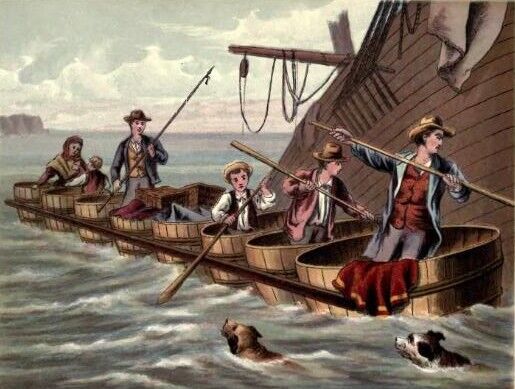
Above: The intrepid family Robinson from Switzerland
These Robinsons do not just survive, they thrive, unlike the other Robinsons. The books covers a period of 10 years on the island. When rescue final arrives some of the family decide to leave and some stay on the island utopia.
The book was a huge success in the English-speaking world, but not at home. It captured little limelight, unlike the story of the little Swiss orphan from the Alps.
The book was widely translated and adapted numerous times to film and television, mostly in English.
Here’s the trailer from the 1960 film which starred John Mills and Dorothy McGuire:
Vocabulary:
the shipwrecked: refers to people who try to survive after the loss or destruction of a ship at sea because of a storm or rocks.
animal husbandry: farming that involves keeping animals to produce food
to let your imagination fly: This expression can be used when you want to encourage someone to think more creatively and use their imagination; similar to brainstorming
to be imbued: filled with strong feelings, opinions or values
to thrive: to become, and continue to be, successful, strong, healthy, etc
limelight: the centre of public attention; in the limelight he’s always in the limelight; out of the limelight She is very modest and prefers to stay out of the limelight

